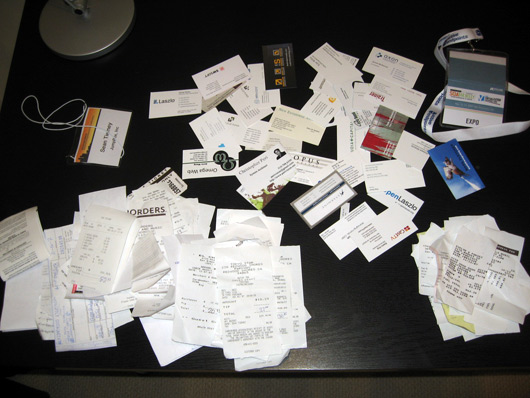What is PPA?
Pay-per-action advertising is a model where the advertiser gets paid only when the visitor completes a specified action on the advertised site. This model has incredible potential for both parties because it circumvents the problem of click fraud (it can be setup so advertisers are paid only when sales are made). From the advertiser’s perspective, you’ll happily pay commission on sales that are made and it’s like having an outsourced affiliate program that you don’t have to manage yourself. From the publisher’s perspective, you can “rep” products that are relevant to your site’s content and (in theory) earn more than you could via adsense because the payouts are much higher. Google’s move into this space disrupts incumbents Commission Junction and which currently charge significant setup fees to get involved as an advertiser (Google charges no setup fees).
Our experience with the Google beta
The unfortunate reality of the current state of the PPA beta on Google is that it appears to be riddled with fraud. “But I thought you said you couldn’t get burned?” – let me explain. We signed up a few months ago and posted a handful of JumpBoxes in their directory offering a generous commission (over 30% for sales generated) to attract affiliates. We saw downloads skyrocket immediately but zero new conversions came from those new downloads. This probably should have been a red flag that the downloads were bogus, but we were still hopeful that it was just a matter of us adapting a landing page for better conversion and continued to run the PPA ads.
About two weeks into it we had seen not one sale originate from the PPA ads- we weren’t losing money on them since the payout was still tied to a sale, but the spurious downloads were throwing off our conversion numbers and tainting our stats. The participants in the Adsense Referrals network (which is this program from the publisher’s side) have a rating system for advertisers and we were concerned that we’d be blacklisted because we hadn’t yet done any payouts so we changed the rewarded action from a sale to the completion of a lead form upon successful download. We dropped the commission significantly to $.50 and treated it as a pure lead generation program. Fortunately we had set the daily cap in adspend because immediately people took advantage of this change and filled out junk emails repeatedly to earn the $.50 payout. I was surprised with how quickly this abuse came. We promptly shut off the PPA ads and discontinued participation in the program – we only lost something like $30 altogether.
Advice for Google
This has got to be a tough problem to combat from Google’s perspective. Juggling both sides of the equation, they have to attract enough quality advertisers with desirable and discreet products that work in the affiliate scenario while at the same time keeping a high quality of publisher in the referral network so as not to alienate the advertisers. Opportunity for fraud abounds – from the advertiser side, there’s no surefire way to enforce that the payout actions are accurately tracked (ie. i could start with the tracking script on our checkout thank you page and then remove it or selectively serve it every fifth purchase to dilute the commissions we pay and nobody would be the wiser). On the side of publisher fraud, it’s easy to participate only in the referral programs where payout doesn’t require a sale and then surf through an anonymizer to emulate people completing those actions via your ads. Google’s system of ratings from publishers is clearly how they are screening advertisers but they don’t seem to have a good way to eliminate the shady publishers. I didn’t see the equivalent ratings system for advertisers to use for this purpose.
Presumably the advice for now is to simply never pay commission on anything other than a sale- unfortunately that reduces the reach of this program to ecommerce sites only. My advice to Google though would be to disallow payment on actions other than sales to “cleanup the streets” in the near term and make it impossible for scammers to game the system. Once it’s economically unviable for them to make money there, they’ll leave and find another shady neighborhood to haunt. This whole thing oddly makes me wish there was an “Internet-wide Boys and Girls Club” to give fraudsters something positive to do- all that clicking just to earn $.50… you’d think there would be a HIT on the Amazon Mechanical Turk where they could legitimately earn more than that will less work…
I hope they figure something out because I love the approach in general of yoking reward as directly as possible to performance. Having studied the negative extremes of this principle with the Learned Helplessness paradigm in school, the idea of tethering reward to successful efforts has appealed to me on a very fundamental level and beyond business. I don’t have a silver-bullet suggestion for Google on how to stamp out fraudulent activity. It’s a very knotted messy problem that could easily spiral out of control scaring away advertisers and creating negative press. Fortunately they have some of the brightest minds on it – having just had lunch on their campus earlier this week, I can attest that it felt like there were definitely more brain cells per capita at Google than any place I’ve been on Earth.







